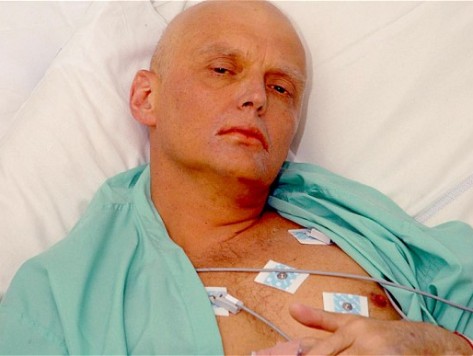Britain will on Thursday formally open an inquiry into the radioactive poisoning of Russian former spy Alexander Litvinenko in a case that threatens to increase tensions with Moscow amid the crisis in Ukraine.
The government announced last week that it would hold an inquiry into the 2006 murder of Kremlin critic Litvinenko, who accused President Vladimir Putin from his deathbed of ordering his killing.
The senior judge chairing the public inquiry, Robert Owen, will give an opening statement at London ´s Royal Courts of Justice that is expected to take around 20 minutes, a spokesman for the inquiry told AFP.
He will then adjourn the hearing until early next year, when he is expected to start taking evidence, the spokesman said.
The inquiry is expected to last until the end of 2015.
The government said that the judge would be able to look at whether the Russian state was behind the mysterious killing, which outraged London at the time and plunged relations with Moscow into the deep freeze.
Britain has strenuously denied any link between its decision to launch the probe and the ratcheting up of international pressure on Russia over the downing of Malaysia Airlines flight MH17 over Ukraine.
But the decision is a major turnaround for the government, coming just months after it had resisted attempts to hold any inquiry on the grounds of protecting sensitive information about Russian and British intelligence.
Russia’s ambassador to London, Alexander Yakovenko, last week said that Moscow would not accept the judgement of the inquiry if any of the evidence was given in secret.
Litvinenko, 43, an ex-agent in Russia’s FSB intelligence agency who turned against his former masters, was poisoned with radioactive polonium-210 while drinking tea at a London hotel.
In a deathbed letter, Litvinenko said he believed Russia’s president was involved in his killing after he publicly criticised the leader, himself an ex-Soviet KGB agent.
British police have identified Russian spy-turned-lawmaker Andrei Lugovoi as the chief suspect and have issued an arrest warrant for his fellow former agent Dmitri Kovtun, but Moscow has refused to hand them over.
They both deny involvement, while Lugovoi called the inquiry politically motivated.
British Home Secretary Theresa May originally wanted to wait for the results of a separate inquest into Litvinenko’s death.
In English law, inquests are held to examine sudden, violent or unnatural deaths. While they determine the place and time of death as well as how the deceased came by their death, they do not apportion blame.
But three High Court judges ruled in February that May must reconsider that decision, following a challenge by Litvinenko’s widow Marina.
Owen must formally suspend the inquest on Thursday before opening the inquiry.
The inquiry comes as Russia faces growing pressure over Ukraine, with the European Union and the United States both announcing broader sanctions in the wake of the MH17 disaster.

COMMENTS
Please let us know if you're having issues with commenting.